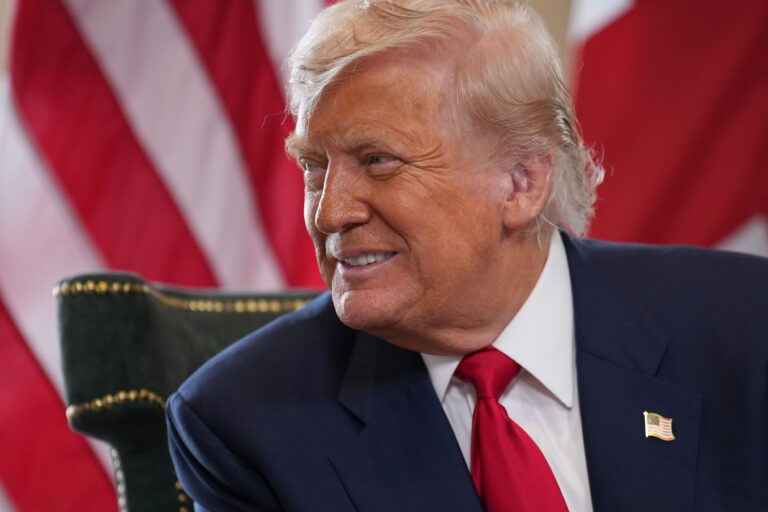President Donald Trump just succeeded where Joe Biden, Barack Obama, and George W. Bush all failed.
Last month, European leaders finally agreed to the president’s persistent demand that they significantly increase defense spending. For nearly two decades, they’d been resisting major spending hikes—despite Presidents Bush, Obama, and Biden all publicly or privately pressuring European allies to contribute more toward the West’s collective defense.

Andrew Harnik/Getty Images
But President Trump refused to take no for an answer. He used ongoing trade talks—and the threat of economic consequences—to force European NATO members into ending their freeloading and agreeing to a new defense spending target of 5 percent of members’ GDPs by 2035. That’s more than double the current 2 percent spending goal.
The deal is a historic victory for American taxpayers, who have shouldered the cost of Europe’s security for too long. It’s a validation of President Trump’s hard-charging approach to foreign relations. And it’s a roadmap for how President Trump could succeed in another area where his predecessors failed: ending the foreign freeloading on America’s biotech industry.
Foreign countries use price controls, rationing, and bureaucratic delays to artificially suppress spending on cutting-edge medicines. As a result, biopharmaceutical companies rely disproportionately on the U.S. market—which accounts for over 70 percent of global biopharmaceutical profits—to fund the research and development needed for new innovative medicines.
President Trump rightly wants to end this freeloading. But his recent proposal to implement most favored nation (MFN) pricing—which would cap U.S. drug prices at the lowest levels paid by other developed nations—won’t fix the problem.
Implementing MFN pricing would be akin to the United States seeking to equalize defense spending with other NATO members by cutting our own defense budget—rather than forcing them to raise theirs. It would slash biopharmaceutical companies’ revenues in their most critical market, thus crippling the development of new innovative medicines, threatening countless American jobs, and handing China the global lead in scientific progress.
Instead, President Trump would be wise to pressure the freeloaders to start paying their fair share—just as he did with NATO—and tear down the trade barriers they’ve erected to avoid doing so.
European nations impose a variety of non-tariff trade barriers to suppress drug spending. Many wealthier Western European countries use external reference pricing, in which they set prices based on what poorer, Eastern European nations pay.
Some countries, such as the United Kingdom, use oversimplified and inherently biased cost-benefit analyses, called health technology assessments, to justify setting low prices on new medicines. And even after a medicine is approved, some countries impose mandatory rebates and clawbacks to take money from drug manufacturers. Rebates in France alone exceeded $8 billion in 2024.
Similarly, these countries delay decisions on which medicines to cover for months or years after the EU’s statutory deadline—in order to run out the clock on companies’ patents. They have also considered legislation to decrease regulatory data protection for new medicines.
Together, these non-tariff barriers deprive companies of revenue that could otherwise fund research and development. And until U.S. leaders knock down these barriers, the cost of global drug development will continue to fall disproportionately on Americans.
President Trump could use America’s economic leverage to demand that America’s wealthy allies match our share of investment in new medicines. If European countries like Germany and France—not to mention other allies like Japan, Canada, and Australia—each committed to spend the same share of per-capita GDP on innovative medicines as the United States, it would result in tens of billions of additional dollars flowing into the drug development pipeline each year.
That would accelerate the development of new medicines while distributing their costs more fairly—causing drug prices to fall at home as they gradually increase abroad.
MFN pricing would let foreign freeloaders dictate America’s health care policy. President Trump’s recent NATO negotiations provide the blueprint for a better deal. By forcing our allies to pay their fair share for cutting-edge drugs, he would reduce the burden on American patients and taxpayers while maintaining American leadership of the global biopharmaceutical industry.
Ambassador Jeffrey Gerrish served as the deputy U.S. trade representative for Asia, Europe, the Middle East, and Industrial Competitiveness from 2018 to 2020.
The views expressed in this article are the writer’s own.


